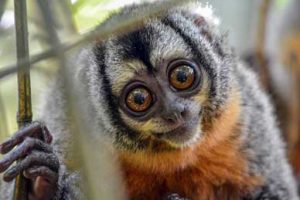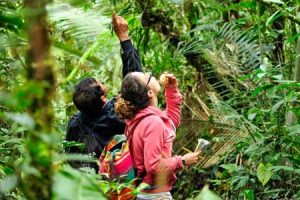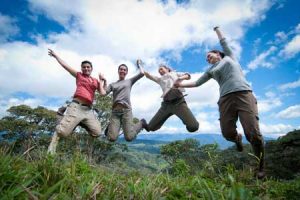Social development in Perú
We recognize the economic needs of the rural families we work with, which in many cases is fundamental to their desire for and ability to conserve the environment. Although local communities can be our best allies in conservation work, they often carry out destructive practices out of necessity. Therefore, if we cannot improve the lives of our partners, or at least reduce their impact without adding to their difficulties, conservation is doomed to failure.
Take a look at our work in land protection and if you want to visit the reserves, contact us !
As well as alternative or additional economic development programs, we also aim to help the local communities in other direct ways. For example, our reforestation efforts include species good for primates, and native species used by local communities for timber or harvesting, thus improving access to materials and ensuring sustainability. Similarly with reforestation, we provide trees and technical guidance for the planting of living fences and river buffer zones, which allows people to keep farming on cleared lands, but provide connectivity between remaining forest fragments and the wildlife which use them.
Other ways we help depend on the needs of the individual community. This includes diverse activities such as the construction of improved wood stoves to reduce pressure on local forests and improve living conditions in homes that use firewood, and sterilization campaigns for pets and street dogs. In many cases, the registration of local forests as protected areas in the name of the local communities greatly increases land tenure security. All of this helps to improve the standard of living for people, reduce pressure on wildlife and forests, and spread awareness and strengthen working relationships between communities and conservationists.



